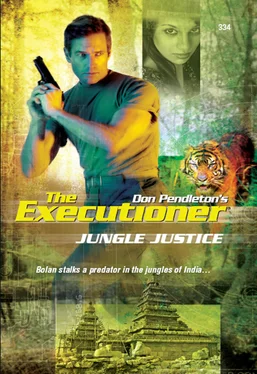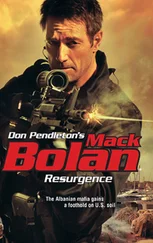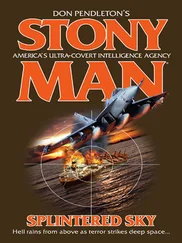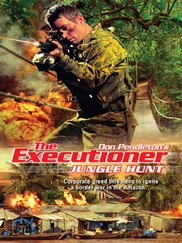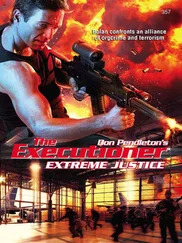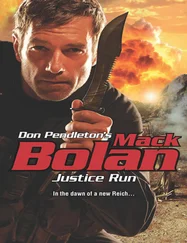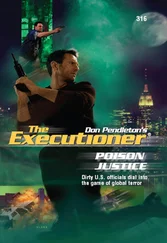All that, before poachers and bandits were added to the mix.
“Sounds like malaria country,” Bolan said.
“I’ve got a medic on standby to update your shots,” Brognola answered.
“Thoughtful to a fault.”
“That’s me.”
“All right,” the Executioner replied. “I’m in.”
Calcutta
The cab dropped Bolan and Takeri two blocks north of Bolan’s hotel and they walked back through the darkness, alert for any sign of followers. Spotting none, they entered the lobby, where the night clerk shot a glance at them, suspicious, then ignored them after recognizing Bolan.
Takeri started toward the creaky elevator, but Bolan stopped him with a word and steered him toward the stairs. If anything had soured since he’d left the place that evening, Bolan didn’t want to meet new adversaries for the first time when the elevator’s door jerked open and the hostiles blazed away at point-blank range.
It proved to be a wasted effort, if security precautions could be wasted in a combat zone. No enemies were waiting for them on the third floor, none in Bolan’s room after he used his key and cleared the threshold in a rush, pistol in hand. The exercise did not make him feel foolish, even so.
Better to be alive and taking too much care than to relax and die.
When they were safely locked inside the room, lights on and curtains drawn, Bolan repeated his original question. “All right, we’re off the streets. Now fill me in on who we’re running from.”
Takeri found a seat and filled it, stretching in an effort to relax. “You understand I cannot be precisely sure. I did not recognize those men.”
“Best guess?”
“It was the first direct attempt upon my life since I left military service. I have enemies, of course, but in the circumstances I assume it was related to your mission.”
“Break it down.”
“Sorry? Oh, yes, I see. In preparation for your coming, I initiated certain contacts. Seeking information on Balahadra Naraka and his associates, attempting to identify his local contacts, vendors and the like. I exercised the utmost caution, but—”
“You tripped some wires, regardless,” Bolan finished for him.
“It is possible,” Takeri answered ruefully. “The other possibility, revenge for some work previously done, strikes me as too coincidental at the present time.”
“Agreed.”
It was a poor beginning to the mission, with his guide and contact compromised, already hunted by the enemy. Bolan had been sucked into the violence, seen by the enemy, and might have sacrificed the critical advantage of surprise.
Or, maybe not.
“You need to lay out everything you’ve done,” he told Takeri. “Everyone you’ve spoken to about Naraka, when and where. If we can figure out who’s hunting you, it tells us which direction we should go to minimize exposure.”
“Certainly.” Takeri frowned. “But, everyone?”
“In order, if you can,” Bolan replied. “We’ve got all night.”
“Do we have coffee?”
Bolan made a call to room service, then settled in to listen while they waited for the coffee to arrive.
“I started with police contacts,” Takeri said. “A Captain Gupta in Calcutta, who collaborates with agents from the Ministry of the Interior to curb the traffic in endangered species and their relics.”
“Is he straight?” Bolan asked.
“Meaning honest?”
“That’s my meaning.”
“I believe so,” Takeri said. “His promotion came through merit, based on his arrests of poachers and their contacts in the export trade. Over the past three years, he has maintained an average of three arrests per week.”
“How many were convicted?” Bolan asked.
Takeri shrugged at that. “I’ve no idea. Is it important that we know?”
“Where I come from,” Bolan replied, “it’s not unusual for crooked cops to make a lot of busywork arrests that go nowhere. They pick up prostitutes and small-time dealers, run them through the system to compile a quota of arrests and bag their commendations, while the courts dish out probation and small fines. Meanwhile, the cops draw paychecks from both sides, and business continues as usual.”
“I see,” Takeri said. “Of course we have such officers in India, as well. But I do not think that Gupta stands among them.”
“Based on what?”
“His reputation. While I’ve told you his promotion came through merit, I should first have mentioned that it had been long delayed, apparently by his refusal to participate in—what is the expression? Office politics?”
Bolan felt better. “Okay, then. What did he give you?”
“Names and addresses of dealers known or thought to traffic in the sort of merchandise Naraka normally supplies. You understand that it is not all tiger pelts and ivory?”
“I got the briefing,” Bolan said. “Weird mumbo-jumbo medicine.”
“To you and I, of course,” Takeri answered. “But to millions in the East, such items are believed to be extremely potent—as their purchasers would hope to be. The so-called medicine concocted from these outlawed items has been used throughout Asia for several thousand years.”
“And no one’s noticed that it isn’t working?” Bolan asked.
“Perhaps it does work, Mr. Cooper, for selected devotees. In the Caribbean and parts of the United States, you have practitioners of voodoo, yes?”
“That’s right.”
“In Africa and parts of South America, cults practice human sacrifice this very day.”
“I wouldn’t rule it out,” Bolan replied.
“Belief,” Takeri said. “It has great power, even though skeptics deny it. When your faith healers perform on television, many people laugh, dismiss it as a fraud, and change the channel, yes? But millions more believe. And who’s to say that none is truly healed?”
“All right,” Bolan said, “let’s assume that eating tiger organs makes some old man happy in the sack. I wasn’t sent to analyze folk medicine or magic. Let’s cut to the chase.”
“I am attempting to explain,” Takeri said, “that some of those with whom Naraka deals are men of faith. They’ll never give him up. I have a list of six or seven names but have not pressed them, knowing it would be a waste of time.”
“Who have you pressed?” Bolan asked.
“I made inquiries with two dealers in Calcutta whom Captain Gupta identified as covert traffickers in tiger pelts and ivory. Posing as a potential buyer, I approached them and was courteously told that while such items sometimes come on offer from the hinterlands, it is illegal to purchase or sell them. The problem, I suspect, lies in the fact that I am native to the area, while nearly all the traffic in such items flows to foreign dealers.”
“So, you struck out with the vendors,” Bolan said.
“Correct.”
“And underneath that courtesy, did either one of them smell like a murderer?”
“In my assessment, no.”
“We’re getting nowhere,” Bolan said.
“I must confess some disappointment in my progress, to that point,” Takeri admitted. “But I did not grow discouraged. If the dealers would not speak to me, I thought, perhaps I could get through to someone else.”
“Such as?”
“Illicit trade of any kind requires protection. Captain Gupta let me have another name.”
“I’m listening,” the Executioner replied.
Takeri studied the American, impressed by his intensity, his bearing and the way he had performed during their skirmish with the assassins on the street. The man who called himself Matt Cooper seemed a worthy ally, and the CIA was paying for Takeri’s services—but it was still a risky business, as had recently been demonstrated by the rude attempt upon his life.
Читать дальше
